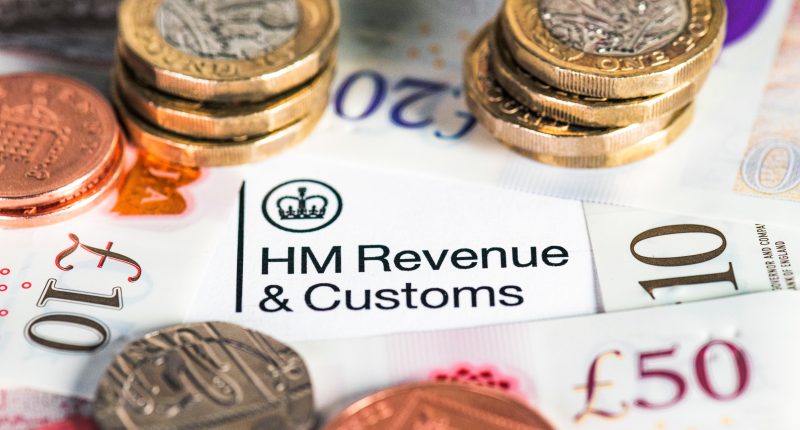THE tax year is drawing to a close within days, so now is the time for households to make sure they’ve utilised all the tax perks on offer.
The new tax year begins on April 6, meaning hard-working Brits have just days left to make the most of tax breaks that could save them thousands of pounds.
This is particularly important this year as millions of low-earners are expected to pay hundreds of pounds extra in tax due to a stealth raid on workers by the Government.
Income tax thresholds have been frozen since 2021, dragging more people into higher tax brackets as wages rise.
Households are now set to pay a record amount this year despite the recent cut to National Insurance rates.
Here, we outline all of the tax perks on offer and how to get your claim in before the tax year ends.
MORE ON TAX
Tax-free childcare
We all know childcare costs a fortune, but there are actually a number of tax breaks available just for caring for your kids.
Families can claim up to £2,000 a year tax-free to go towards childcare costs.
This is on top of the 30 hours of free childcare, if you are eligible for both.
You can claim the allowance in instalments of £500 every three months, and you can claim double if you’re claiming for a disabled child.
Most read in Money
To be eligible, both parents must work at least 16 hours a week and earn the minimum wage or above.
Visit gov.uk/tax-free-childcare to get started.
Savings allowance
Low earners taking home between £12,570 and £17,570 a year could earn up to £5,000 in interest on their savings without having to pay a penny in tax.
This would save them £1,000 that they would otherwise have had to hand over to the taxman.
This situation is most likely to apply to pensioners who have a lot of cash in savings but are no longer earning a wage or are reliant on the state pension.
If you earn more than this, you can still make £1,000 in interest tax-free.
This would save a basic-rate taxpayer (earning between £12,571 and £50,270) £200.
In a normal year, most low earners wouldn’t expect to make even £1,000 interest.
But higher rates on savings recently mean 5.5million people breached the threshold in November last year.
Marriage allowance
Couples on a low income who have tied the knot could save £252 a year with the marriage allowance.
The allowance allows one partner to share 10% of their £12,570 tax-free personal allowance with the other to reduce their tax bill, assuming they have it spare.
Two million couples are estimated to be missing out on this, according to HM Revenue & Customs (HMRC).
You can claim it on the Government website.
Claims can be backdated for up to four years, saving a taxpayer £1,260 in total.
Trading allowance
Savvy sellers could earn up to £1,000 a year by flogging their wares or services with the trading allowance.
The allowance could save a basic-rate taxpayers up to £200 a year in tax.
Laura Suter, head of personal finance at investment firm AJ Bell, explained: “It’s great for people doing a bit of work on the side such as babysitting, selling items, dog-walking or even selling jam at their local market.
“And the good news is that if you earn less than £1,000 a year from your side hustle then you won’t usually need to fill out a tax return.”
Rent out your home or driveway
Anyone with a driveway to spare or going away for a few weeks could earn up to £1,000 tax-free.
You can rent your home on Airbnb while you are on holiday or let out your driveway to commuters for a bit of extra cash, and as long as you earn below the £1,000 threshold, you don’t need to pay a penny in tax.
READ MORE SUN STORIES
The allowance could save you £200 a year from HMRC. If you don’t drive, apps like JustPark let other commuters use your parking space while you pocket the money.
Renters need to get their landlord’s permission to let out their house while they are away, while both homeowners and renters should check with their home insurer first.
How do I file a tax return?
TO file a self assessment tax retun, you’ll need to register with HMRC first, which will then issue you with a Unique Taxpayer Reference (UTR).
You must register for self assessment by October 5 if you have to file a tax return and you have not sent one before.
You can do so by visiting www.gov.uk/register-for-self-assessment.
If you’ve previously registered and already have a UTR, you don’t need to go through this step again.
Once you’ve got your UTR, you can sign in via the “Self Assessment tax return” section of HMRC’s website by visiting www.gov.uk/log-in-file-self-assessment-tax-return.
You can then file your self assessment tax return online.
The deadline for sending a return online is January 31 every year.
If you need a paper copy of the main Self Assessment tax return, call HMRC on 03000 200 3610 and request an SA100 form.
The deadline for sending a return using a paper form is October 31 every year.
You need to pay the tax you owe by midnight on January 31 each year.
HMRC accepts your payment on the date you make it, not the date it reaches its account.
File late and HMRC will issue you with a fine.
Do you have a money problem that needs sorting? Get in touch by emailing [email protected].
Plus, you can join our Sun Money Chats and Tips Facebook group to share your tips and stories.










